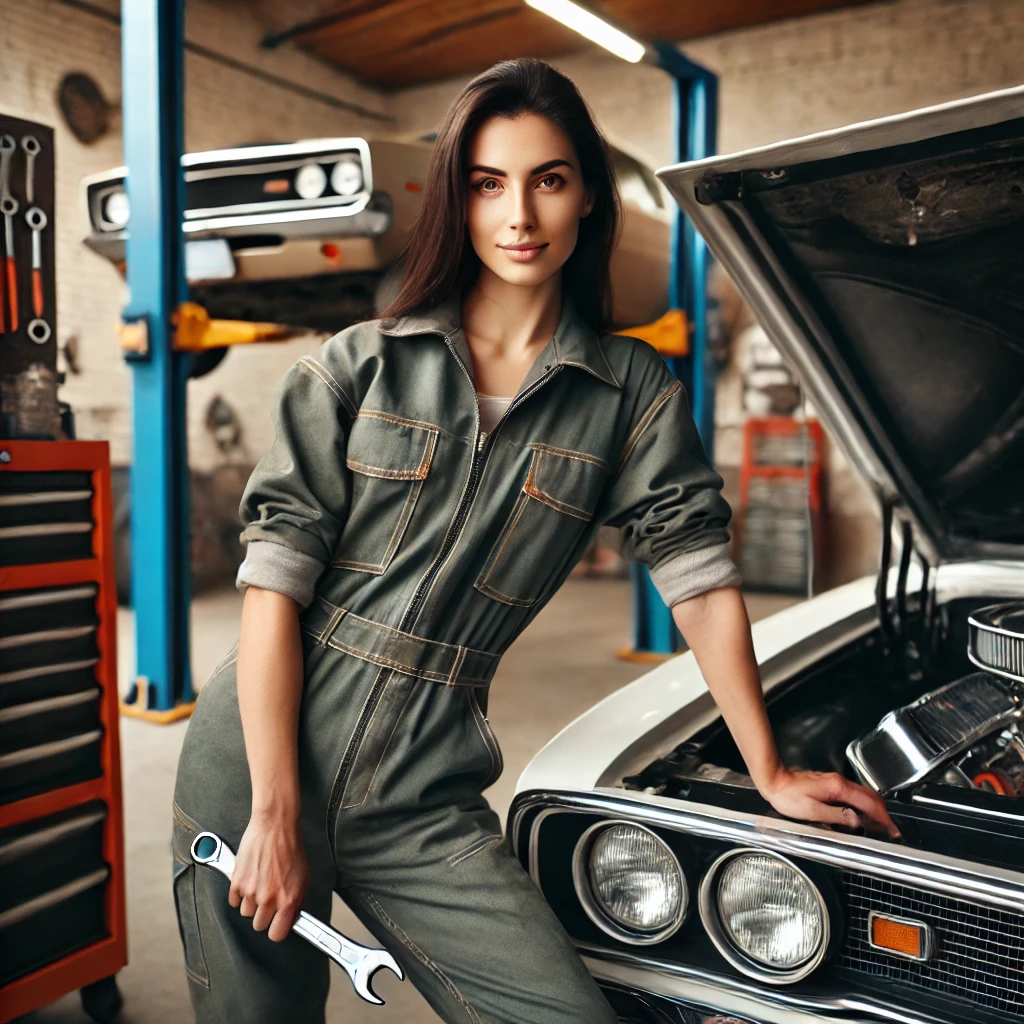Women in Car Culture: Breaking Stereotypes and Driving Empowerment
For decades, the automotive world has been seen as a predominantly male-dominated space. From engineering and racing to customization and car shows, women have often been relegated to the sidelines, if not overlooked entirely. However, the tide is shifting. Women are not only participating in car culture but thriving within it, challenging stereotypes and paving the way for future generations. This transformation is a powerful testament to empowerment, passion, and the breaking of barriers.
Breaking Stereotypes
The stereotype that cars are a “man’s thing” is outdated and uninspired. Women have always had a place in automotive history, whether as engineers, racers, designers, or enthusiasts. Yet, their contributions have often been overshadowed. Now, women are reclaiming their space, proving that expertise, creativity, and enthusiasm for cars transcend gender.
Women like Shirley Muldowney, the first woman to earn an NHRA Top Fuel license, and Danica Patrick, the most successful woman in open-wheel racing, have demonstrated that gender has no bearing on skill or success. In the customization world, professionals like Bogi Lateiner of “All Girls Garage” fame are redefining what it means to be a mechanic and fabricator. These women, and countless others, show that passion for cars is universal and that anyone can excel with dedication and grit.
Representation Matters
Representation plays a critical role in dismantling stereotypes. When young girls see women thriving in automotive careers or dominating in motorsports, they begin to imagine themselves in those roles. Programs like the “Women in Motorsports” initiative and all-female car clubs provide platforms for women to connect, learn, and showcase their talents.
Social media has also become a powerful tool for representation. Platforms like Instagram, TikTok, and YouTube allow women to share their journeys, from rebuilding engines to participating in drift events. Influencers like Emelia Hartford and Mechanic Girl inspire millions with their content, demonstrating that women can be just as knowledgeable and passionate about cars as their male counterparts.
Empowerment Through Customization
Car customization is one of the most personal expressions of automotive passion. For many women, it’s an empowering way to assert their individuality and creativity. Whether it’s modifying a classic muscle car, building a show-stopping import, or tuning a modern performance vehicle, women are making their mark in customization.
One standout example is the growing number of female-led car builds at events like SEMA (Specialty Equipment Market Association). These builds showcase not only technical skills but also the unique perspectives women bring to car culture. Projects like the “All-Women Bronco Build” demonstrate the strength of collaboration and the power of diversity in a traditionally homogeneous field.
Customization also offers a sense of community. Female car enthusiasts often find camaraderie in groups like “Ladies of Lowriding” or “Women’s Auto Club,” where they can share knowledge, celebrate achievements, and support one another. These communities are crucial in fostering a sense of belonging and breaking down barriers in the broader automotive world.
Challenges and Overcoming Bias
Despite the progress, women in car culture still face significant challenges. Gender bias, skepticism, and outright discrimination are not uncommon. Many women have stories of being underestimated, dismissed, or questioned simply because of their gender. However, these experiences often fuel a determination to prove naysayers wrong.
Education and advocacy are key to overcoming these challenges. Organizations like “Women in Automotive” and “Gear Girls” work to provide resources, mentorship, and opportunities for women in the industry. These initiatives not only support individual growth but also promote a more inclusive and accepting car culture.
Creating Opportunities
As the industry evolves, creating opportunities for women becomes increasingly important. This involves opening doors in fields like automotive engineering, design, sales, and motorsports. Companies like General Motors and Ford have begun investing in diversity initiatives, recognizing the value of women’s contributions at all levels of the industry.
STEM (Science, Technology, Engineering, and Mathematics) programs targeting young girls are also essential. By encouraging interest in automotive technology and engineering from an early age, these programs lay the groundwork for future generations of women in the field. Partnerships between car manufacturers and educational institutions can further bridge the gap, providing internships, scholarships, and hands-on experiences.
The Role of Men as Allies
Breaking down barriers in car culture isn’t just the responsibility of women. Men in the industry and community have a critical role to play as allies. This means actively challenging stereotypes, advocating for inclusion, and supporting women’s participation and leadership.
For example, male car enthusiasts can create more inclusive spaces by ensuring that women’s voices are heard and respected. Mentorship and collaboration are also powerful tools for fostering gender equality. When men and women work together as equals, the entire automotive community benefits from diverse perspectives and ideas.
The Road Ahead
The future of women in car culture is bright. As more women enter the field and challenge the status quo, they pave the way for a more inclusive and dynamic automotive world. This progress is not just about gender equality—it’s about celebrating passion, skill, and creativity in all its forms.
Women are redefining what it means to be a car enthusiast, showing that love for cars has no boundaries. From the racetrack to the garage, from car meets to boardrooms, women are driving change and inspiring others to follow.
Conclusion
Car culture has always been about freedom, self-expression, and community. By breaking stereotypes and empowering women, the automotive world is becoming a richer and more vibrant space. Whether through racing, customization, engineering, or advocacy, women are making their mark and proving that car culture truly belongs to everyone.
The journey isn’t over, but the road ahead is filled with promise. Let’s celebrate the women who are shifting gears and steering the automotive world toward a future of inclusion and empowerment. Their stories inspire us all to dream big, drive hard, and never stop chasing our passions.

